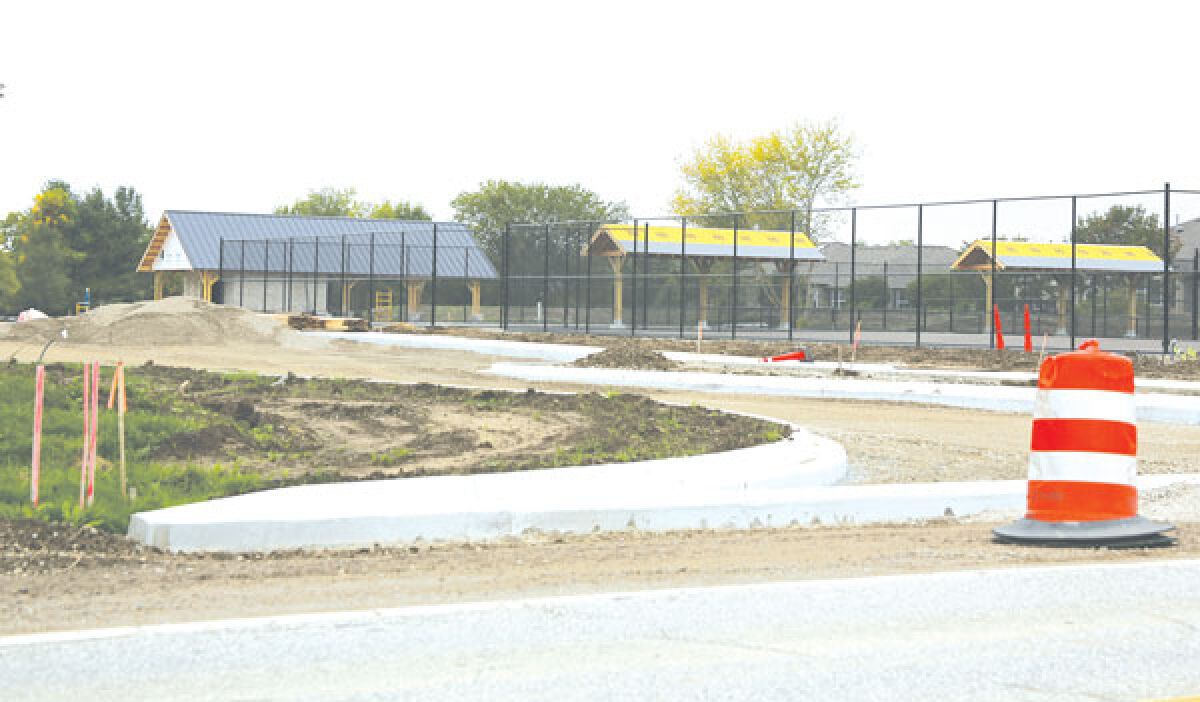MACOMB TOWNSHIP — The plans for Pitchford Park keep growing.
At the Sept. 27 meeting, the Macomb Township Board of Trustees accepted a grant to build a butterfly habitat in the park.
Provided by Canadian National Railway through its EcoConnexions program and administered through Macomb County’s Department of Planning and Economic Development, milkweed seeds will be planted across about an acre of the park’s drain and wetland section.
“There’s been a number of studies showing the monarch butterflies in the eastern United States declining substantially over the last 20 years — in the last few years, even more substantially,” said Leon Drolet, township treasurer. “One of the challenges these butterflies are facing in the eastern part of the United States in particular is pesticides. In a lot of wetland areas, you’ve got phragmites, an invasive species, crowding out milkweed and other flowering plants that the butterflies need.”
Milkweed is particularly important for monarch butterflies, since it is the only flower they lay eggs on and the only flowers monarch caterpillars eat.
“We’ve already worked with the contractor who is building Pitchford Park to get the approved seeds that would be used in the planting areas,” Drolet said.
The monarch butterfly habitat is the most recent addition to Pitchford Park’s development. The most recent amenities addition was the purchase of die-cut art. Other park amenities will include play areas, pickleball and tennis courts, and a walking path.
Lucido River Park was another park to be discussed at the meeting with trustees authorizing a joint permit application for the park. Completion of the application and acceptance from the Michigan Department of Environment, Great Lakes and Energy will allow the township to seek grant opportunities and construct amenities in the park.
“The intention here is, really, to have at the end of this process a park design and permits in hand, and those permits last four years,” said Township Supervisor Frank Viviano, who called into the meeting and was unable to vote on any items. “We’ll have four years of grant opportunities to start building the infrastructure we’d like to see there. And if we can’t get it done in four years, we’re confident we can extend that permit for another number of years and keep going after grant opportunities.”
The application will require a topographic survey, a hydraulic analysis and an endangered species review at a cost of $56,450.
Water infrastructure projects
Trustees also approved several projects to replace water infrastructure in the township.
First approved was a $2.74 million project to replace sanitary sewer pump station No. 1, located at the northeast corner of Hall Road and Gratiot Avenue. The station has been active for over 25 years and plans to replace it began in 2018. According to Land Development Director James Van Tiflin, it will be the last metal-based pump station to be replaced and the concrete-based replacement station is expected to have a 40- to 50-year life.
Trustees then approved replacing the water main along Romeo Plank Road between 22 Mile and 23 Mile roads at a cost of $2.36 million. The new main will be larger at 16 inches, whereas the current main is 12 inches.
Romeo Plank Road itself is being increased in size next year, and approving the main replacement now gives the township time to coordinate the project with the Macomb County Department of Roads. Van Tiflin said the new main will have a 30-year service life.
Finally, trustees approved beginning the design work on replacing 8-inch and 12-inch water mains to the Plum Grove Village subdivision. Estimated to cost $16.5 million and take place over four years, township officials are seeking grant opportunities to help lower the cost of the full replacement.
 Publication select ▼
Publication select ▼



















